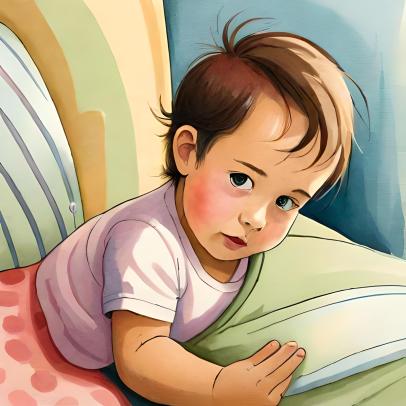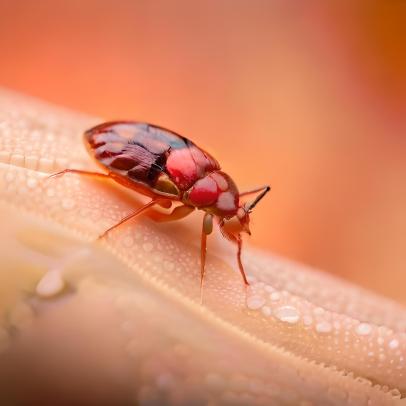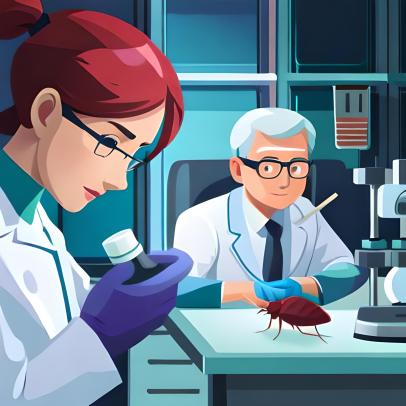Baby Bed Bug Bites: Understanding, Prevention, and Treatment

Welcome to our comprehensive guide on baby bed bug bites. In this article, we will delve into the topic of baby bed bug bites, covering everything from their characteristics to prevention and treatment methods. Our aim is to provide you with detailed information that will help you understand, address, and ultimately prevent these pesky insect bites. So, let's dive in!
What are Baby Bed Bug Bites?
Baby bed bugs, scientifically known as Cimex lectularius, are tiny insects that feed on human blood. These nocturnal pests are commonly found in mattresses, furniture, and cracks and crevices near sleeping areas. While they are small in size, their bites can cause significant discomfort and irritation.
Bed bug bites typically appear as small, red, itchy bumps on the skin. They are often arranged in a cluster or a line, resulting from the bugs' feeding pattern. Identifying these bites is crucial in order to take prompt action and prevent further infestation.
Characteristics of Baby Bed Bug Bites

Close-up image showcasing the typical characteristics of baby bed bug bites on human skin.
Baby bed bug bites, also known as nymph bed bug bites, have some distinct characteristics. Here are the key features:
Size and Appearance: Baby bed bugs, or nymphs, are smaller in size compared to adult bed bugs. They are typically around 1.5 to 4.5 millimeters in length, which is roughly the size of a pinhead. Their bites tend to be smaller and less pronounced compared to bites from adult bed bugs.
Reddish Welts: Like adult bed bug bites, baby bed bug bites often appear as small, raised bumps on the skin. They usually have a reddish color, which is a result of the bug's feeding on human blood.
Clusters or Linear Patterns: Baby bed bug bites commonly occur in clusters or linear patterns. This is because bed bugs often bite multiple times in the same area while feeding. You may notice several bites grouped closely together or a line of bites along a particular body part.
Itching and Irritation: Bed bug bites, including those from baby bed bugs, can cause itching and irritation. The intensity of the itching can vary from person to person. Some individuals may experience mild itching, while others may have more pronounced discomfort and a stronger urge to scratch.
Delayed Reaction: It's important to note that not everyone reacts to bed bug bites in the same way. Some people may develop an immediate reaction, experiencing redness and itching shortly after being bitten. However, others may have a delayed reaction, with symptoms appearing hours or even days after the initial bite.
Absence of Pain: Baby bed bug bites are generally painless when they occur. Unlike other insect bites, such as mosquito bites, bed bug bites do not cause an immediate sensation of pain.
Prevention Tips to Avoid Baby Bed Bug Bites

Prevention is always better than cure, especially when it comes to dealing with baby bed bug bites. By following these preventive measures, you can significantly reduce the risk of infestation:
Regular Cleaning: Keep your living space clean and clutter-free. Vacuum mattresses, upholstery, and carpets regularly to remove any potential hiding spots for bed bugs.
Mattress Protection: Encase your mattress and pillows in bed bug-proof covers. These covers create a barrier, preventing bed bugs from entering or escaping.
Inspection: Regularly inspect your living areas, including beds, furniture, and cracks in walls. Look out for signs of bed bugs, such as dark spots, shed skins, or a sweet musty odor.
Avoid Second-Hand Furniture: Be cautious when acquiring used furniture. Inspect it thoroughly before bringing it into your home, as bed bugs can easily hide in the seams and crevices.
Travel Precautions: When traveling, inspect hotel rooms for signs of bed bugs. Keep your luggage elevated and away from the bed. Upon returning home, wash and dry your clothes on high heat to kill any potential bed bugs.
Treating Baby Bed Bug Bites

Learn how to treat baby bed bug bites using effective remedies and expert advice.
If you or your baby has been bitten by bed bugs, it's important to address the bites promptly. While the bites themselves are not harmful, they can cause discomfort and potential skin infections. Here are some treatment options to consider:
Clean the Area: Wash the affected area gently with mild soap and water. This helps remove any dirt or bacteria that may have been introduced by scratching.
Apply Calamine Lotion: Calamine lotion can provide relief from itching and reduce skin inflammation. Apply it directly to the bites as directed by the product instructions.
Topical Steroids: In cases of severe itching or inflammation, a topical steroid cream or ointment prescribed by a healthcare professional may be recommended.
Avoid Scratching: As tempting as it may be, avoid scratching the bites. Scratching can break the skin and increase the risk of infection.
Seek Medical Advice: If the bites become increasingly painful, show signs of infection, or if you experience severe allergic reactions, seek medical attention promptly.
Conclusion
In conclusion, baby bed bug bites can be a nuisance, causing discomfort and irritation. By understanding their characteristics, taking preventive measures, and addressing bites promptly, you can effectively minimize the impact of these pesky pests on your life and well-being.
Remember, prevention is key. By maintaining good hygiene practices, regularly inspecting your living spaces, and being cautious when traveling, you can significantly reduce the risk of encountering baby bed bugs and their bites.
Frequently Asked Questions (FAQs)
Can baby bed bug bites transmit diseases?
Fortunately, baby bed bug bites are not known to transmit diseases. However, they can cause discomfort, itching, and potential skin infections if scratched excessively.
How can I prevent baby bed bug bites?
To minimize the risk of baby bed bug bites, follow these preventive measures:
- Keep your home clean and clutter-free.
- Regularly inspect and vacuum mattresses, furniture, and carpets.
- Use protective covers on mattresses and pillows to prevent bed bugs from infesting them.
- Be cautious when acquiring secondhand furniture or items, as they may carry bed bugs.
- Avoid placing luggage or bags on beds or upholstered furniture when traveling.
Can I use insect repellent on my baby to prevent bed bug bites?
It is generally not recommended to use insect repellent on infants under the age of two months. For older babies, consult your pediatrician before applying any repellents to ensure they are safe and suitable for your child’s age.
How long do baby bed bug bites last?
The duration of baby bed bug bites can vary from person to person. In most cases, the bites heal within one to two weeks with proper care and treatment.
Can I get rid of bed bugs on my own?
While DIY methods can help control bed bug infestations to some extent, professional pest control is often necessary for complete eradication. Bed bugs are resilient pests that can hide in tiny crevices and reproduce quickly, making them difficult to eliminate without professional help.
Are there any natural remedies for baby bed bug bites?
While natural remedies like aloe vera gel or oatmeal baths may provide temporary relief, it’s essential to consult your pediatrician before using any home remedies on your baby’s delicate skin. They can guide you on the safest and most effective options.

